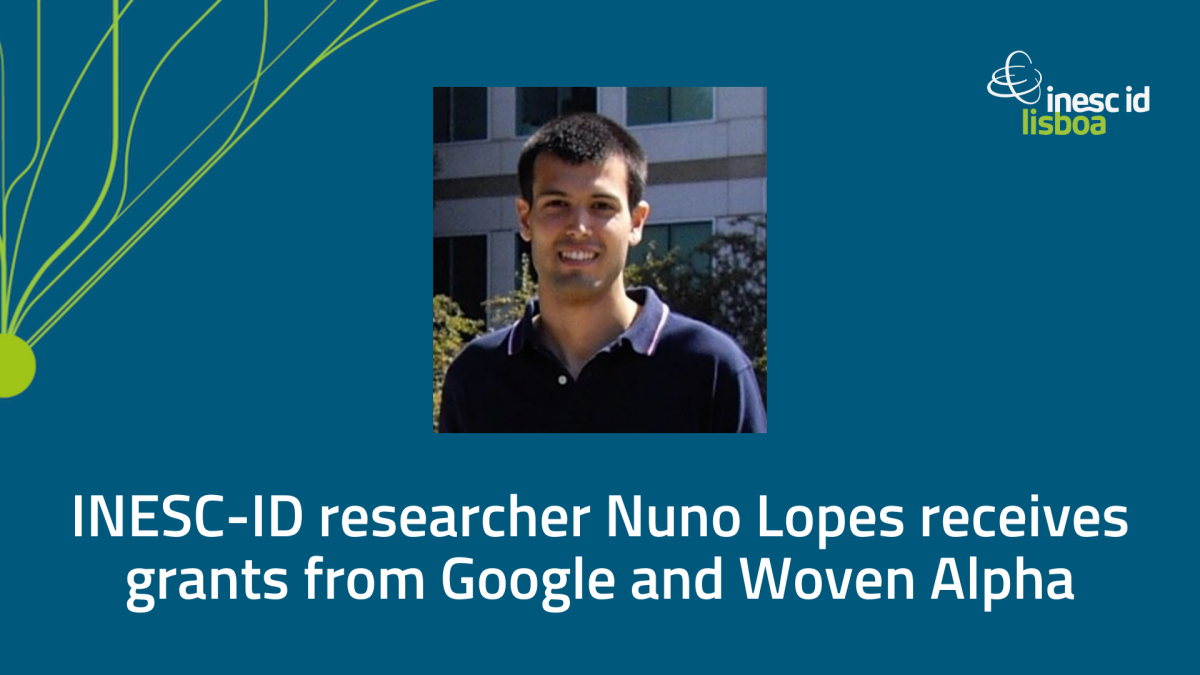
Nuno Lopes receives research grants from Google and Woven Alpha
Nuno Lopes — researcher within the High Performance Computing Architectures and Systems Research Area at INESC-ID and Associate Professor at the Department of Computer Science and Engineering at Instituto Superior Técnico — has been awarded research grants from Google and Woven Alpha (a subsidiary of Toyota) worth €35,000 and $30,000, respectively.
The grant from Woven Alpha will fund Alive2, a project that Lopes has been leading for several years and aims at verifying that a compiler — a computer program that translates computer code across programming languages — is working correctly. “Toyota uses LLVM (the compiler supported by Alive2) to compile the code for the cars, so they want to ensure that the generated code is correct,” Lopes explains. “For example, a bug in the compiler can cause an accident in a car because the code will behave differently from what was programmed. Alive2 has already found over a hundred bugs in LLVM and now continues to ensure that new bugs are not introduced into the compiler.” With this grant Lopes expects to increase the scope of Alive2 by supporting loop optimizations.
The Google grant, on the other hand, will fund a new project, also in the area of compilers, meant to improve interoperability between C++ and Rust, two popular programing languages. As Lopes puts it, “Rust is a newer, more secure language than C++. On the other hand, it is impossible to rewrite all the C++ code that exists. Thus, we intend to investigate the best way for libraries developed in both languages to work together easily and safely.”
Both companies offer these grants to encourage research in the area of compilers and train more people in it, Lopes comments, recognizing this as a challenging area to recruit people in. As Lopes explains, research on compilers “is a very important area of computing because we want software to be written in increasingly high-level languages in order to increase programmers’ productivity, but also to allow non-programmers to write small programs. On the other hand, we want the code to run fast, take up little space, and be secure. It’s a huge challenge that compilers have to solve.”
And what do grants from Google and Woven Alpha mean for a researcher at Nuno Lopes’ career stage? “These [grants] are very important to me because I joined the academic world (and IST) only in January of this year. Before, I was working in the industry outside the country (at Microsoft Research). These grants allow me to have [some funds] to start activities at IST, namely to hire students and buy equipment.”
High Performance Computing Architectures and Systems is one the eleven Research Areas at INESC-ID. For more details on these eleven areas, covering a wide range of topics in Computer Science and Engineering and Electrical and Computer Engineering, please pop over to our website.
